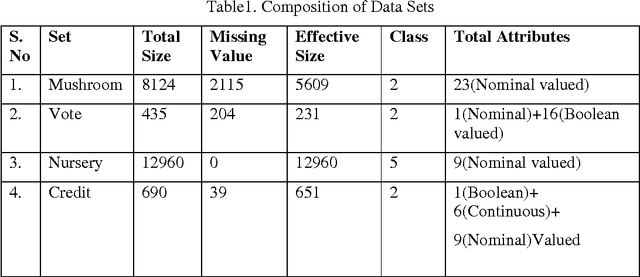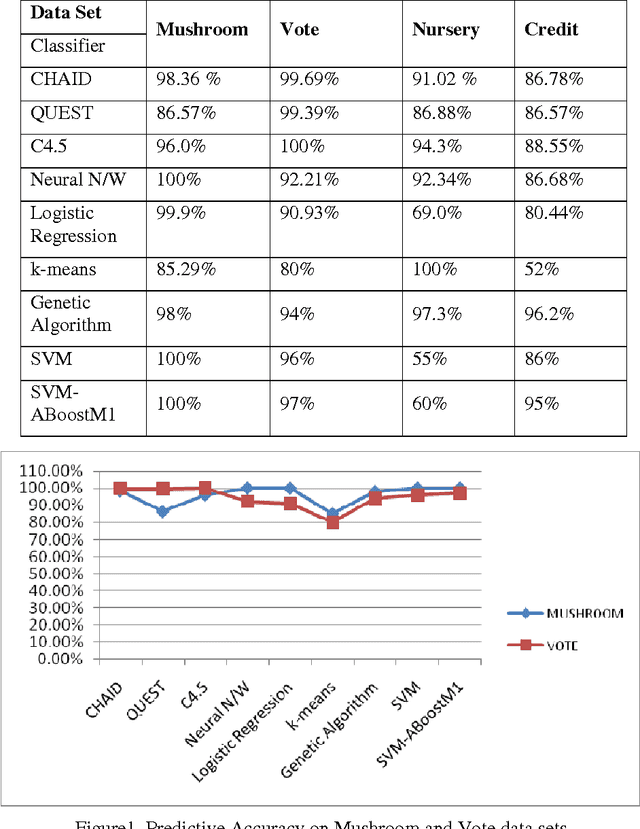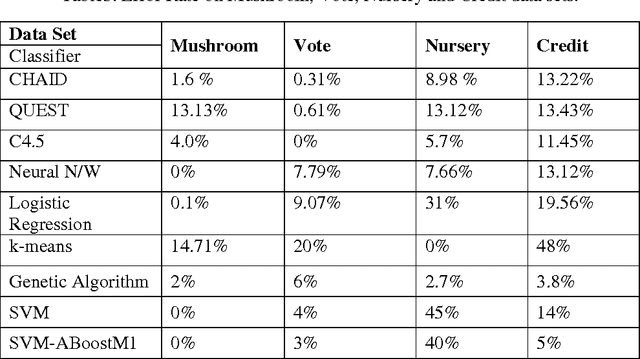Pardeep Kumar
A Benchmark to Select Data Mining Based Classification Algorithms For Business Intelligence And Decision Support Systems
Oct 11, 2012



Abstract:DSS serve the management, operations, and planning levels of an organization and help to make decisions, which may be rapidly changing and not easily specified in advance. Data mining has a vital role to extract important information to help in decision making of a decision support system. Integration of data mining and decision support systems (DSS) can lead to the improved performance and can enable the tackling of new types of problems. Artificial Intelligence methods are improving the quality of decision support, and have become embedded in many applications ranges from ant locking automobile brakes to these days interactive search engines. It provides various machine learning techniques to support data mining. The classification is one of the main and valuable tasks of data mining. Several types of classification algorithms have been suggested, tested and compared to determine the future trends based on unseen data. There has been no single algorithm found to be superior over all others for all data sets. The objective of this paper is to compare various classification algorithms that have been frequently used in data mining for decision support systems. Three decision trees based algorithms, one artificial neural network, one statistical, one support vector machines with and without ada boost and one clustering algorithm are tested and compared on four data sets from different domains in terms of predictive accuracy, error rate, classification index, comprehensibility and training time. Experimental results demonstrate that Genetic Algorithm (GA) and support vector machines based algorithms are better in terms of predictive accuracy. SVM without adaboost shall be the first choice in context of speed and predictive accuracy. Adaboost improves the accuracy of SVM but on the cost of large training time.
* 18 Pages, 11 Figures, 6 Tables, Journal
 Add to Chrome
Add to Chrome Add to Firefox
Add to Firefox Add to Edge
Add to Edge